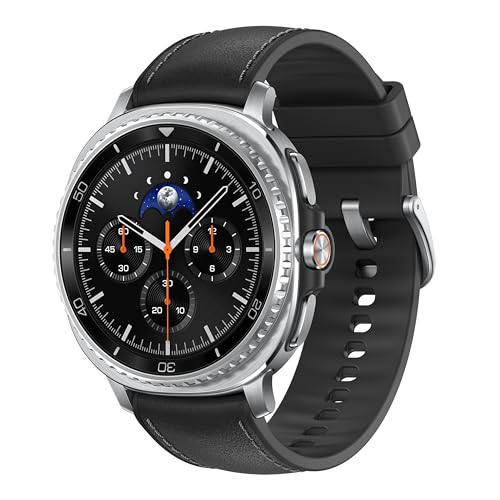Introduction to Smartwatches (Apple Watch and Samsung Galaxy Watch)
Smartwatches have emerged as pivotal accessories within the realm of wearable technology, serving as multifunctional devices that extend beyond mere timekeeping. In essence, a smartwatch integrates the capabilities of traditional watches with advanced technological features, allowing users to perform a variety of tasks directly from their wrists. These devices have gained popularity due to their impressive array of functionalities, including fitness tracking, health monitoring, and seamless notifications from smartphones.
One of the primary appeals of smartwatches is their ability to keep users connected and informed. Notifications for calls, messages, and applications appear on the smartwatch screen, enabling individuals to stay engaged without constantly reaching for their smartphones. This convenience is particularly beneficial in today’s fast-paced world, where quick access to information is paramount. Additionally, many smartwatches feature fitness tracking capabilities, making them ideal for health enthusiasts. Functions such as heart rate monitoring, step counting, and workout tracking assist users in maintaining a healthy lifestyle, thus reinforcing the growing importance of these devices in personal fitness.
Moreover, smartwatches have entered the fashion landscape, combining technology with style. With an array of customizable watch faces and interchangeable straps, users can personalize their devices to reflect their uniqueness while enjoying the benefits of advanced technology. This intersection of style and function has led to the widespread popularity of smartwatches among diverse demographics.
The purpose of comparing the Apple Watch and Samsung Galaxy Watch lies in understanding the nuances between these two leading brands in the smartwatch market. Each offers a distinct set of features tailored to different user preferences and needs. By analyzing their capabilities, aesthetics, and functionalities, potential buyers can make informed decisions that align with their lifestyle and technology requirements.
Design and Build Quality (Apple Watch vs Samsung Galaxy Watch)
The design and build quality of wearable technology play a significant role in a consumer’s decision-making process. When comparing the Apple Watch and the Samsung Galaxy Watch, both devices exhibit distinct physical attributes tailored to different user preferences. The Apple Watch is renowned for its sleek, minimalist aesthetics, featuring a rectangular display that feels modern and sophisticated. Available in various sizes, users can choose from models like the Series 8 and SE, generally crafted from premium materials such as stainless steel, aluminum, and even ceramic. The Retina display enhances the experience, offering vibrant colors and sharp images, which are particularly effective for outdoor visibility.
In contrast, the Samsung Galaxy Watch adopts a more traditional round watch face, appealing to those who prefer a classic look. This design choice is coupled with customizable watch faces, allowing users to personalize their experience further. The Galaxy Watch is available in various sizes as well, such as the Galaxy Watch 5, alongside multiple materials, including stainless steel and aluminum. Samsung employs an AMOLED display, which provides exceptional brightness and contrast, making it suitable for various lighting conditions and enhancing the overall viewing experience.
Both brands emphasize durability, but their approaches differ. The Apple Watch is designed to withstand daily wear, with features that include water resistance up to 50 meters, making it suitable for swimming. Meanwhile, the Samsung Galaxy Watch also boasts a strong build quality, often including military-grade durability for enhanced resilience against the elements. In summary, both the Apple Watch and Samsung Galaxy Watch cater to diverse consumer preferences with their unique design philosophies, offering a range of size options, material choices, and aesthetic appeals to accommodate various lifestyles.
Features and Performance
The Apple Watch and Samsung Galaxy Watch are both leading choices in the smartwatch market, offering a variety of features tailored for health, fitness, and daily performance. Starting with health monitoring, the Apple Watch provides advanced metrics, including heart rate monitoring, ECG functionality, and blood oxygen levels. These features promote an extensive range of health tracking options that can be particularly beneficial for users who prioritize health insights. The Galaxy Watch, while it lacks ECG monitoring, compensates with its robust activity tracking capabilities, offering features such as advanced sleep tracking, stress management, and even the option for Body Composition Analysis.
GPS accuracy is another crucial factor in smartwatch performance, especially for fitness enthusiasts. The Apple Watch excels in GPS accuracy, providing seamless navigation during outdoor activities, while the Galaxy Watch offers impressive outdoor performance as well, ensuring users can track their runs and rides with precision. Both watches support multiple sports modes, catering to a variety of fitness levels and preferences.
When it comes to app ecosystems, the Apple Watch boasts a vast selection of applications available through the App Store, seamlessly integrating into the iOS environment. This smooth interconnectivity allows for an enhanced user experience. In contrast, the Galaxy Watch is designed to work harmoniously with the Android ecosystem, particularly Samsung devices. It also supports third-party applications but may not have the extensive offerings that iOS provides.
Battery life remains an essential aspect of smartwatch performance. The Apple Watch typically lasts up to 18 hours on a single charge, which may require more frequent recharging compared to the Galaxy Watch, known for its longer-lasting battery, which can extend up to several days under typical usage conditions. Unique features, such as the Galaxy Watch’s rotating bezel, facilitate an intuitive way to navigate the smartwatch interface, enhancing user experience.
In conclusion, while both the Apple Watch and Samsung Galaxy Watch excel in different areas, the best choice depends on the user’s individual needs regarding health tracking, seamless connectivity, and overall functionality.
Price and Value Proposition
When contemplating the purchase of a smartwatch, the price and value proposition are pivotal elements influencing a consumer’s decision. In the realm of smartwatches, the Apple Watch series and Samsung Galaxy Watch series stand out, each offering varying models with distinctive pricing structures. The Apple Watch typically ranges from approximately $249 for the entry-level models to around $1,499 for the premium versions, such as the Apple Watch Ultra. In contrast, Samsung Galaxy Watches, which range from $249 for the Galaxy Watch4 to about $400 for the Galaxy Watch5 Pro, cater to a similarly diverse market segment.
Analyzing the value offered by each device, it is essential to consider additional factors beyond initial cost. For instance, Apple provides regular software updates for its devices, which can extend the device’s useful life significantly. This implies that when investing in an Apple Watch, users benefit from ongoing enhancements and features, thereby potentially increasing their long-term value. On the other hand, Samsung also offers substantial warranty provisions and timely updates, particularly for the newer Galaxy Watch models, making them a competitive choice in terms of longevity and reliability.
Aside from warranty and software support, resale value plays a crucial role in the overall cost of ownership. Apple products generally exhibit higher resale values due to brand loyalty and demand. In comparison, the resale value of Galaxy Watches may not be as robust, yet their competitive pricing presents a compelling case for budget-conscious consumers seeking quality without excessive financial commitment.
Ultimately, the decision between the Apple Watch and Samsung Galaxy Watch should be informed by one’s budget and personal preferences. Both brands deliver substantial value across their offerings, allowing consumers to make choices aligned with their financial circumstance and desired features.
Comparison between Apple Watch Series 10 and the Samsung Galaxy Watch 8
⚙️ Design & Build
- Apple Watch Series 10: Sleek rectangular design, iconic digital crown, and a wide range of premium bands. Perfect for those who love Apple’s minimalist aesthetic.
- Samsung Galaxy Watch 8: Classic round dial with rotating bezel, offering a traditional watch feel. Ideal for users who prefer a timeless look. Sources:
📱 Ecosystem Integration
- Apple Watch: Works seamlessly with iPhones, iPads, and Macs. If you’re already in the Apple ecosystem, it’s a natural fit.
- Samsung Galaxy Watch: Built on Wear OS with Samsung’s One UI Watch. Best paired with Galaxy smartphones but also compatible with other Android devices. Sources:
🏃 Fitness & Health Tracking
- Apple Watch Series 10: Advanced sensors for heart rate, ECG, blood oxygen, and new AI-driven workout coaching. Accurate step tracking and integration with Apple Fitness+.
- Galaxy Watch 8: Strong focus on sleep tracking, body composition analysis, and stress monitoring. Samsung Health app provides detailed insights.
- Real-world test: A 5,000-step walk showed the Apple Watch was slightly more precise in step count, while the Galaxy Watch excelled in sleep and recovery metrics. Sources: Gadgetshieldz+1
🔋 Battery Life
- Apple Watch Series 10: Around 18–24 hours on a single charge, with fast charging support.
- Galaxy Watch 8: Up to 2–3 days depending on usage, making it the better option for those who dislike daily charging. Sources:
💰 Price & Value
- Apple Watch Series 10: Starting around ₹33,900, positioned as a premium device.
- Galaxy Watch 8: Slightly more affordable, offering strong value for Android users. Sources:
🏆 Verdict
- Choose Apple Watch Series 10 if you’re an iPhone user who values seamless integration, premium design, and advanced fitness coaching.
- Choose Samsung Galaxy Watch 8 if you want longer battery life, a classic round design, and deeper sleep/health insights—especially if you’re an Android user.
Ultimately, the best smartwatch depends on your ecosystem and lifestyle. Apple wins on precision and integration, while Samsung shines in battery and holistic health tracking.


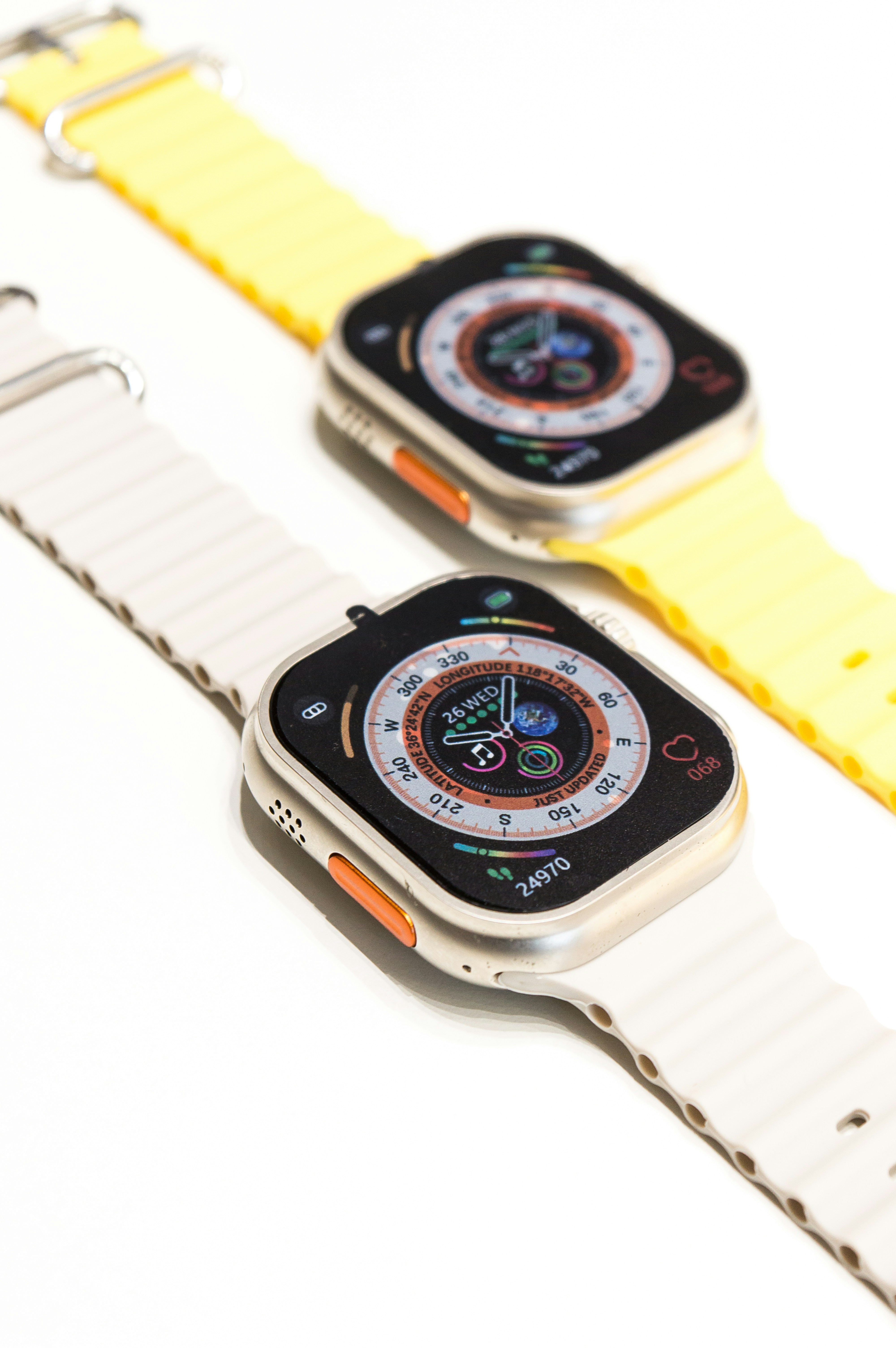
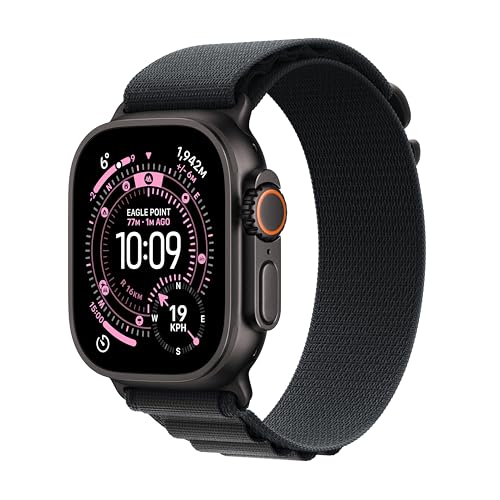
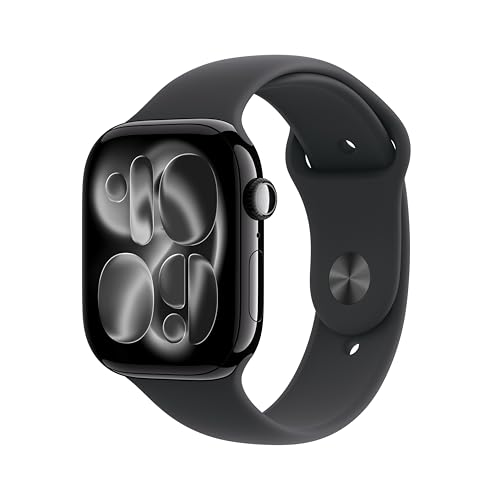

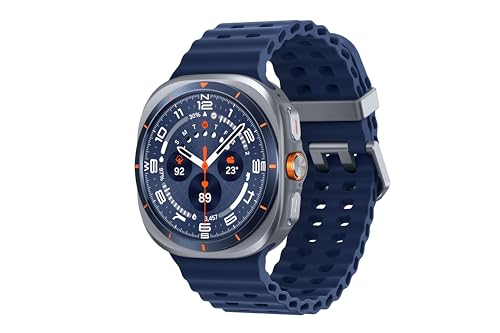
![Apple Watch Series 10 [GPS + Cellular 42 mm] Smartwatch with Natural Titanium Case with Stone Grey Sport Band- M/L. Fitness Tracker, ECG App, Always-On Retina Display, Water Resistant](https://m.media-amazon.com/images/I/41XhW1WLsPL.jpg)
![Apple Watch Series 10 [GPS 46 mm] Smartwatch with Jet Black Aluminium Case with Black Sport Band - S/M. Fitness Tracker, ECG App, Always-On Retina Display, Water Resistant](https://m.media-amazon.com/images/I/31Cud2WnszL.jpg)
![Samsung Galaxy Watch 8 Classic (2025) 46mm Bluetooth Smartwatch – Black | Rotating Bezel, Sleep & Fitness Tracking, Energy Score, Quick Button with Smart Plug [US Version]](https://m.media-amazon.com/images/I/512qYFbL+9L.jpg)
